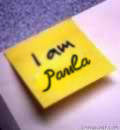Information on diverticulitis (diverticulosis), inflammation of the diverticula in the digestive tract.
Diverticulitis occurs when there is inflammation and infection in one or more diverticula. This usually happens when outpouchings become blocked with waste, allowing bacteria to build up, causing infection.
Diverticulosis is the formation of numerous tiny pockets, or diverticula, in the lining of the bowel. Diverticula, which can range from pea-size to much larger, are formed by increased pressure on weakened spots of the intestinal walls by gas, waste, or liquid. Diverticula can form while straining during a bowel movement, such as with constipation. They are most common in the lower portion of the large intestine (called the sigmoid colon).
Causes of Diverticulitis
It's believed that most diverticula are caused by unnoticed muscle spasms, or by pairs of muscles that don't contract in a synchronized manner. This puts brief but intense pressure on the mucosal layer, causing pressure at the weakest points. The weakest points are the areas around blood vessels that pass through the inside of the wall of the large intestine (also called the colon). Older people have frailer tissue lining the bowel this is probably why they have more diverticula.
Diverticulitis Treatment
What Are the Complications of Diverticulitis?
The traditional medical treatments for diverticulitis focus on clearing up the infection, reducing inflammation, resting the colon and preventing complications.
Antibiotics, pain medication, bed rest, and a liquid diet are often used to achieve these goals.
However, if your diverticulitis doesn't respond to these treatments, becomes more frequent or severe, or if complications develop, surgery (called a colon resection) may be needed. This involves removing the infected colon section and reattaching two new healthy pieces.
What Are the Complications of Diverticulitis?
Serious complications can occur as a result of diverticulitis. Most of them are the result of the development of a tear or perforation of the intestinal wall. If this occurs, intestinal waste material can leak out of the intestines and into the surrounding abdominal cavity causing the following problems:
- Peritonitis (a painful infection of the abdominal cavity)
- Abscesses ("walled off" infections in the abdomen)
- Obstruction (blockages of the intestine)



